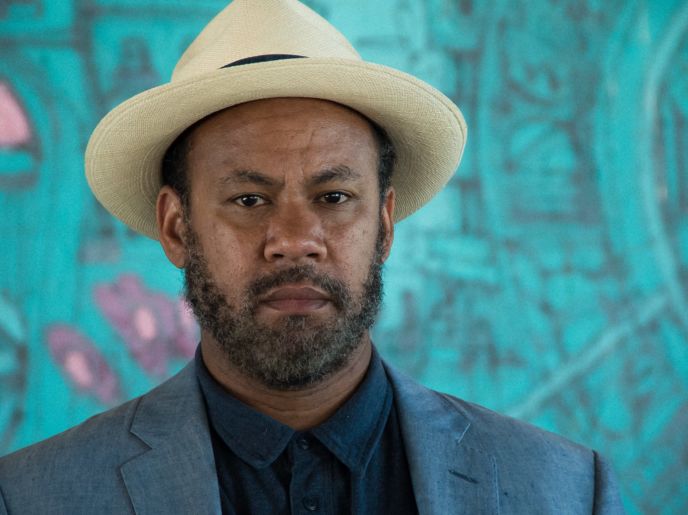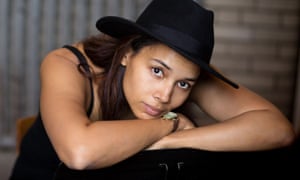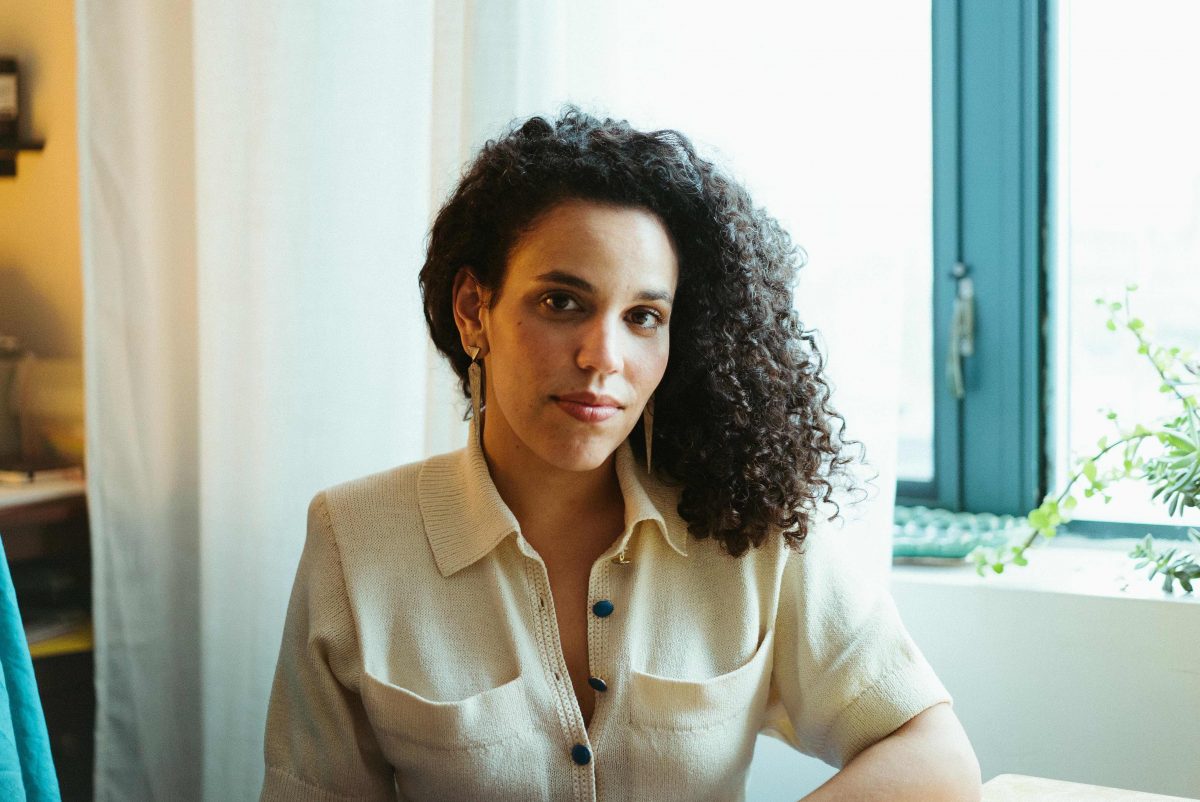Corinne Bailey Rae on her nomadic lifestyle, racial identity and pregnancy
gal-dem
2017-10-16
Charlie Brinkhurst Cuff

photography Kiran Gidda
If you’re a voracious reader, you’ll know something about being drawn into worlds that aren’t your own. It’s a tantalising prospect, especially for introverts. What I discovered earlier this year, is that singer-songwriter Corinne Bailey Rae has the same magical quality as an enchanting novel. It’s a strange idea but bear with me, because if you’re lucky enough to meet her and spend time with her, to listen to her music, you’ll understand what I mean. Her world, soundtracked by sweet, soulful vocals, a picked guitar and stretching across oceans thanks to her nomadic lifestyle, has just a pinch of magic – black girl magic. She’s created it in her image.
Bailey Rae was part of the soundtrack of my youth (her debut came out when I was 12), but thanks to her ageless looks it’s difficult to believe she’s not just a couple of years older. Growing up in Scotland as a mixed-race girl amongst a blisteringly white population, she offered something that I didn’t realise I needed. Her image was attainable and aspirational. Here was a black, mixed-race British woman making beautiful music with her hair in natural curls, and the type of expressiveness that made her immediately relatable. I sang three of Bailey Rae’s songs (‘Like a Star’, ‘Till it happens To You’ and ‘Choux Pastry Heart’) from her eponymous debut album Corinne Bailey Rae for my music exams – A*’s you know – and, like everyone else during the summer of 2006, had her huge hit ‘Put Your Records On’ playing on repeat for months…
…From earlier conversations I know that Bailey Rae is interested and articulate on the topic of race. She was enamoured by the Kerry James Marshall exhibition in LA and recommends to me a book by Nell Irvin Painter, on the history of white people. “My dad had come from the Caribbean, but he didn’t talk to me a lot about racism which I think was a deliberate thing because he wanted to protect us,” she says about her childhood. “He didn’t want to suggest this sort of inherent thing […] And then my mum was very engaged. I learnt about South Africa and apartheid.”
Although she admits that she and her sisters would “pick the peas out of our rice and peas”, and didn’t necessarily know their black Caribbean nana’s culture “as well as we should have done”, it’s clear that she is very in touch with her blackness. When she performs at AFROPUNK London a few weeks after our interview, a festival which loudly celebrates black culture, Matthew Morgan, the founder of AFROPUNK, tells me that Bailey Rae had been very keen to play. “She approached me multiple times,” he says. On stage she tells the crowd: “I wish this community had been here for me when I was 15.” I’m at the front of the audience, screaming every lyric back at her like an embarrassing “stan” (mega fan).
There are mixed race people on both sides of Bailey Rae’s family – she has “brown cousins” on her mum’s English side as well as her dad’s. When she comments on her cousin’s shades, it reminds me that I’ve read that the term she prefers to use to describe herself is “brown” too. “At first we were brown and then we were half-caste and then mixed-race and then dual-heritage and then it was ok to just be black,” says Bailey Rae, obviously aware of the debate around how mixed-race people should define themselves, but disparaging. “I feel like I don’t really have a term if I’m really honest. That’s why I say it [brown] in like an almost silly way. As it’s almost like I’ve been labelled so many different things in the past 38 years that none of them feel familiar or satisfying.”…
Read the entire article here.


:format(jpeg):mode_rgb():quality(90)/discogs-images/R-12568832-1537789041-6348.jpeg.jpg)






